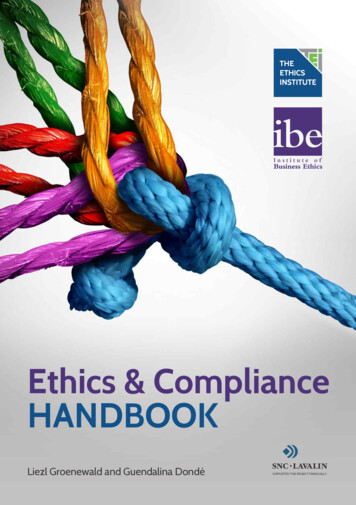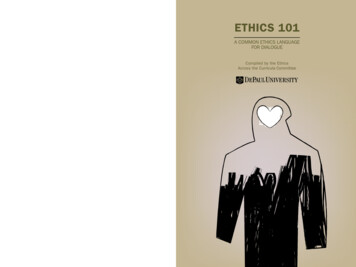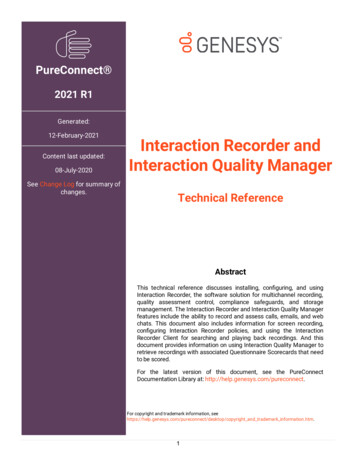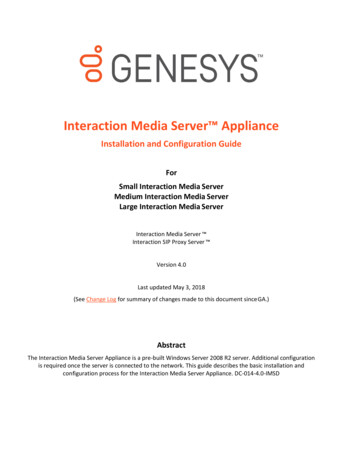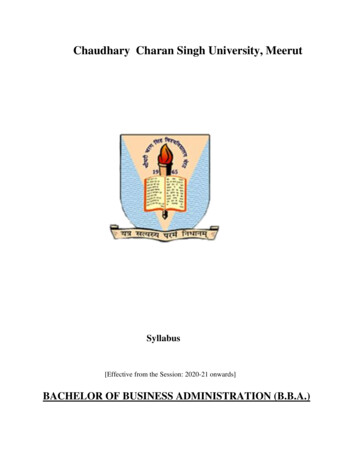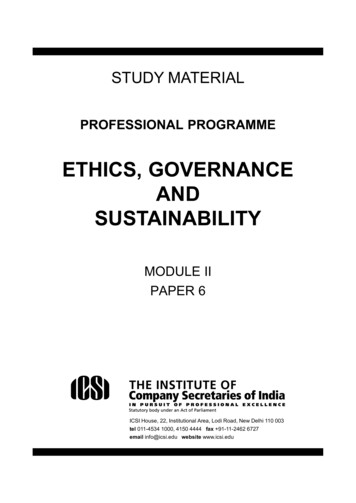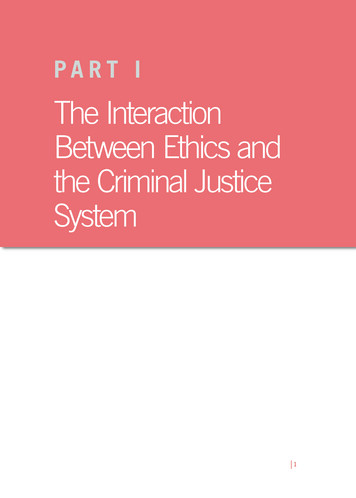
Transcription
PART IThe InteractionBetween Ethics andthe Criminal JusticeSystem1
1TheImportance ofEthics in Criminal JusticeTo live ethically is to think about things beyond one’s own interests.When I think ethically I become just one being, with needs anddesires of my own, certainly, but living among others who also haveneeds and desires.—Peter Singer 1995: 174 The Meaning of EthicsEthics, also known as moral philosophy, is a branch of philosophy concerned with the study ofquestions of right and wrong and how we ought to live. Ethics involves making moral judgmentsabout what is right or wrong, good or bad. Right and wrong are qualities or moral judgments weassign to actions and conduct. Within the study of ethics, there are three branches: metaethics, concerned with methods, language, logical structure, and the reasoning used in the interpretation ofethical terms, for example, what exactly the term “good” means; normative ethics, concerned withways of behaving and standards of conduct; and applied ethics, concerned with solving practicalmoral problems as they arise, particularly in the professions, such as medicine and law.Ethics provides us with a way to make moral choices when we are uncertain about what todo in a situation involving moral issues. In the process of everyday life, moral rules are desirable,not because they express absolute truth but because they are generally reliable guides for normalcircumstances (Singer 1995: 175). The focus of this book is on normative and applied ethics, particularly the exploration and analysis of ethical dilemmas and conflict situations that arise withinthe criminal justice system. The Value of EthicsDo we need to study ethics? One view is that if we need to make a decision about a dilemma thatconfronts us, we can do so without any knowledge of ethics. From this perspective, ethics is tooabstract and theoretical and is not related to the practical world. Another view is that we need asystem of rules and principles to help guide us in making difficult decisions when moral issuesarise. If we cannot draw on an ethical framework, we have to rely on emotion, instinct, andpersonal values, and these cannot supply an adequate answer to moral dilemmas. Among thereasons commonly given for studying ethics are the following:2
Chapter 1The Importance of Ethics in Criminal Justice 3 Ethical considerations are central to decisions involving discretion, force, and due processthat require people to make enlightened moral judgments. Knowledge of ethics enables a person to question and analyze assumptions that are typically not questioned in areas of activity like business and politics. Questioning the criminaljustice system should also be encouraged. This includes raising issues regarding such topics as the relationship between crime and justice, the role of law enforcement, the placeof punishment, the limits of punishment, the authority of the state, the proper function ofprisons, fairness in the workplace through creating a safe working environment, and equalopportunity. The study of ethics increases sensitivity to issues of right and wrong and the right way toconduct oneself, and aids in identifying acts that have a moral content. Only through studying ethics is it possible to define unethical behavior. A full understanding of ethical behavior demonstrates that it includes not only “bad” or “evil” acts but alsoinaction that allows “bad” or “evil” to occur. It is important to have the capacity to point to moral reasoning in justifying behavior, andthe study of ethics develops that capacity. It is crucial that ethical decisions are made, and the study of ethics enables the development of tools that enhance ethical decision making. Training in critical ethics helps to develop analytical skills and reasoning abilities neededto understand the practical as well as the theoretical aspects of the criminal justice system(Felkenes 1987). Understanding ethics enables an appreciation of the complexitie
1 2 The Importance of Ethics in Criminal Justice To live ethically is to think about things beyond one's own interests. When I think ethically I become just one being, with needs and



